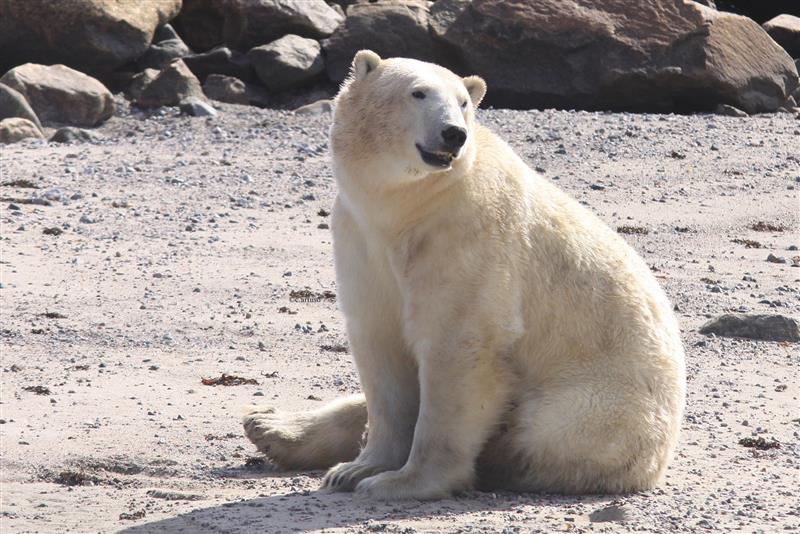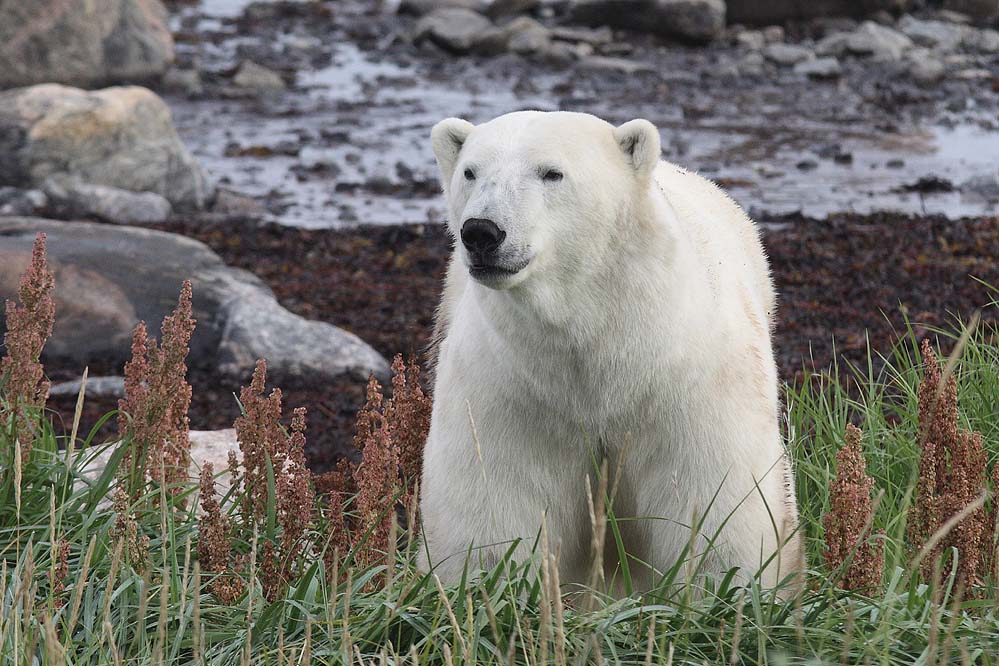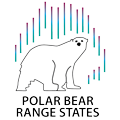Objective-4 Deliverables
-
Uses of harvest information to estimate demographic parameters for polar bears (Ursus maritimus) white paper
 Photo credit: Christian Artuso
Photo credit: Christian Artuso A white paper entitled “Uses of harvest information to estimate demographic parameters for polar bears (Ursus maritimus)” authored by Eric V. Regehr, Melissa P. Galicia, Erik M. Andersen, Fernando Ugarte, Evan S. Richardson and Amelie Roberto-Charron has been published on the Polar Bear Range States website.
The purpose of the white paper was to provide an understanding of information that can be gained from harvested bears to inform subpopulation status, as well as the type of study that may be required for a comprehensive subpopulation assessment. The white paper constitutes the Deliverable D1 “Report with recommendations for harvest data collection and how harvested bears can inform subpopulation status” under CAP Objective 4 (Ensure that harvest of polar bear subpopulations is managed in a biologically sustainable manner in accordance with sound conservation practices), Action HM-A6: “Develop methods to collate available data from harvested bears and how to analyze that data.”
The white paper can be viewed and downloaded here
-
Scientific publication on International consensus principles for the sustainable harvest of polar bears
 Photo credit: Christian Artuso
Photo credit: Christian Artuso
Polar bears (Ursus maritimus) are legally harvested for subsistence (i.e., nutritional, cultural, and economic) purposes by Indigenous Peoples in Canada, Greenland, and the United States. As sea-ice loss due to climate warming continues, ensuring that subsistence harvest remains sustainable is a primary conservation priority. This paper, commissioned by the Polar Bear Range States under the 1973 Agreement on the Conservation of Polar Bears, establishes international consensus principles to guide the management of harvested polar bear subpopulations. It defines sustainable harvest in relation to population dynamics, outlines the scientific assessments needed to determine sustainable harvest levels—including habitat evaluations, demographic studies, and Indigenous Knowledge—and describes the components of a sustainable, state-dependent harvest management regime. By integrating climate considerations into harvest strategies and emphasizing interjurisdictional cooperation, these principles provide a foundation for long-term conservation while supporting the ability of Indigenous Peoples to maintain subsistence practices. The full paper was published in the journal Conservation Biology in March 2025 and is available for download below.
The Regehr et al. 2025 Conservation Biology paper can be viewed and downloaded here
-
Polar bear sustainable harvest management white paper
 Photo credit: Christian Artuso
Photo credit: Christian Artuso
A white paper entitled “Polar bear harvest management: defining biological sustainability, the components of a quantitative subpopulation assessment, and the components of a sustainable harvest management regime” authored by E.V. Regehr, E.M. Andersen, M.P. Galicia, S.A. Iverson, L.S. Mangipane, E.S. Richardson, F. Ugarte, S.P. Woodruff has been published on the Polar Bear Range States website.
The purpose of the white paper is to provide consistent guidance while allowing co-management partners the flexibility to select harvest strategies that meet their specific situation and management objectives. The framework presented reflects the life history of polar bears and considers the current and future effects of climate change. It is based largely on a western science approach to harvest management and may not represent Indigenous-centered ways of defining or achieving sustainability.
The white paper can be viewed and downloaded here
